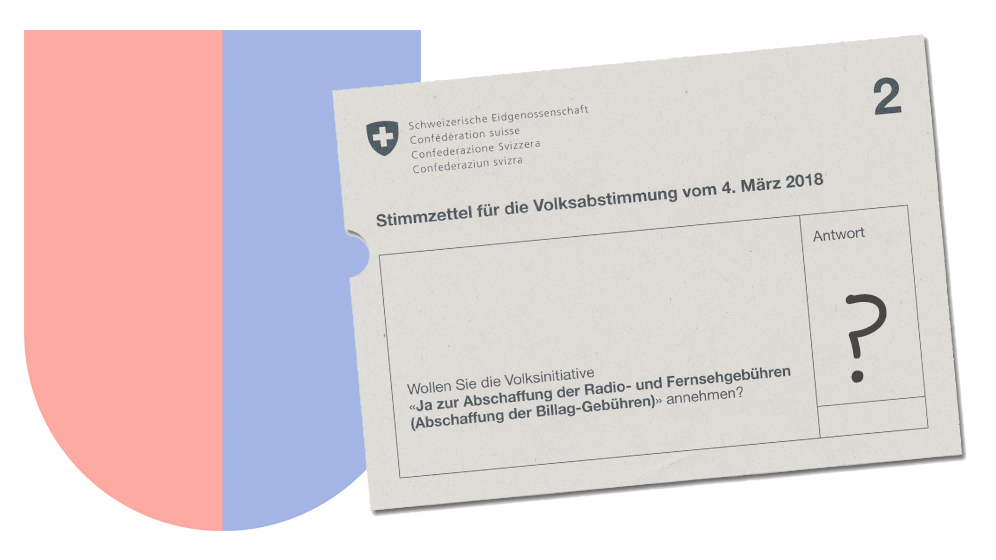Ticino remains a shaky candidate in the No Billag vote
The Italian-speaking part of Switzerland benefits the most from radio and television fees. Nevertheless, according to the GFS poll published on Wednesday, an acceptance of the No Billag initiative in Ticino seems possible.

In Italian-speaking Switzerland, sympathy for the proposal is currently building up, according to the study by the GFS-Bern research institute. It is conceivable that a protest vote will be held there thanks to the "yes" slogans of the Lega and SVP.
In 2015, the new law on radio and television fees had already failed in Ticino. This was despite the fact that Italian-language radio and television (RSI) - which broadcasts not only to Ticino but also to the southern valleys of Graubünden - is the second-largest employer after the cantonal administration.
According to SRG statistics, RSI employs 1155 people. Out of an annual budget of 239.2 million francs, only a small part comes from advertising revenue. A value-added study published in 2017 by the BAK Basel economic research institute showed that RSI, on the other hand, generates CHF 213 million in added value annually, as it also feeds many suppliers.
20 percent from fee income
With a population of around 350,000, Italian-speaking Switzerland accounts for only 4.5 percent of the total Swiss population, but RSI receives more than 20 percent from fee income. It thus operates two TV stations and three radio stations in Italian. It is also a partner of numerous cultural events, such as the Locarno Film Festival. During the referendum campaign, the "No No Billag" committee therefore provided a number of rational reasons why the initiative should be rejected.
"If the initiative is approved, there will be no more RSI," opponents said, calculating that this would threaten the existence not only of the station and its employees, but also of cultural organizations.
Protest vote from the belly possible
But as in many votes, reason weighs less in Ticino than a vague gut feeling served by the Lega dei Ticinesi. Since its inception, then still with its late president Giuliano Bignasca, it has railed against the fee system as an additional burden imposed on the poor southern canton by the German-speaking Swiss.
This argument is now also used by the proponents of the initiative. The fee is the most expensive in Europe, and this for a "state radio and -" that does not work in the interest of the population, but for immigrants, criticized National Councilor Lorenzo Quadri at his recent television appearance.
In doing so, he is preaching to a large part of the Ticino population. The poverty rate in Ticino is rising, the number of people dependent on social welfare increased by around 2.5 percent in 2017, and the feeling of constant economic pressure makes any further fee a spectre.
But even the Lega and the SVP are not unanimous. Marco Borradori, president of Lugano's Lega, told SDA that if the initiative were to be accepted, not only would RSI's jobs be lost in Comano, a neighboring community of Lugano, but also those of its suppliers.
Population is close to private broadcasters
For all the common-sense reasons, relatively little attention is paid to popular feeling. In southern Switzerland, this is close to the young and very active private stations. This was shown as a recent example by the station Radio3i, where two presenters managed to break the world record in continuous moderation.
It seemed as if the whole canton was cheering along. More than a thousand people gathered in front of the radio building and held out until the record - more than eighty hours of non-stop moderation - was broken. Afterwards, there were tearful hugs and a long celebration. Compared to such a hands-on station, RSI appears more aloof, bureaucratic and out of touch, even when it organizes concerts with stars. (Barbara Hofmann/SDA)








